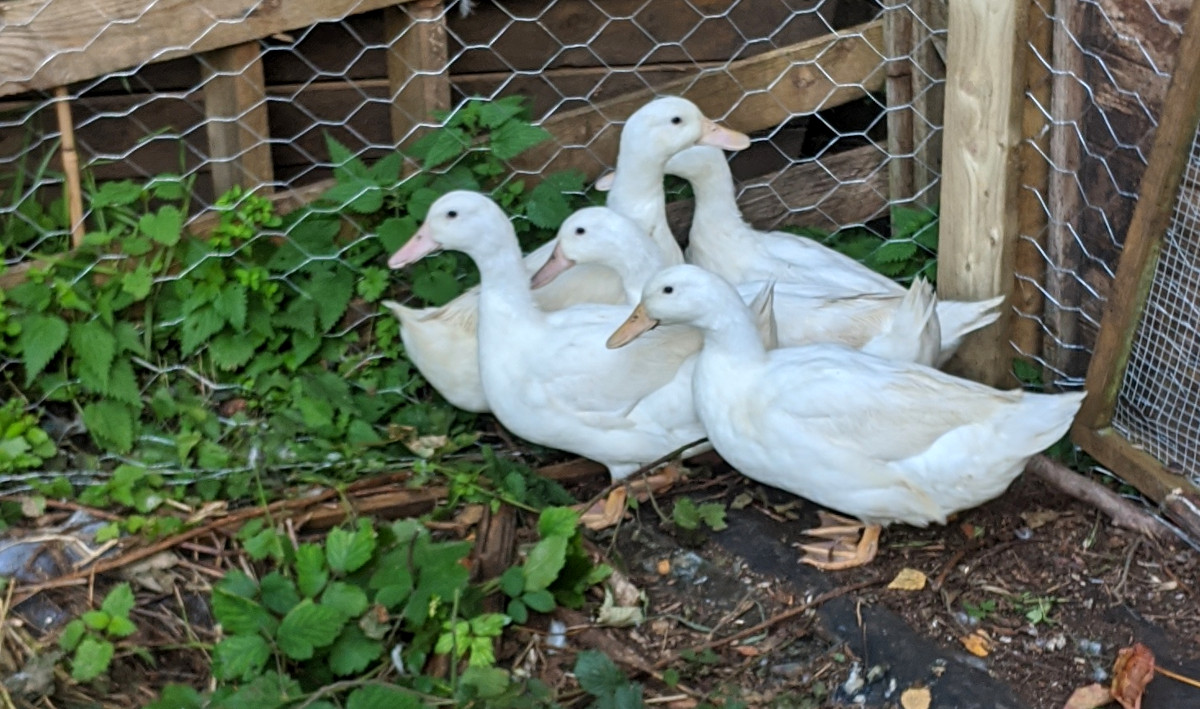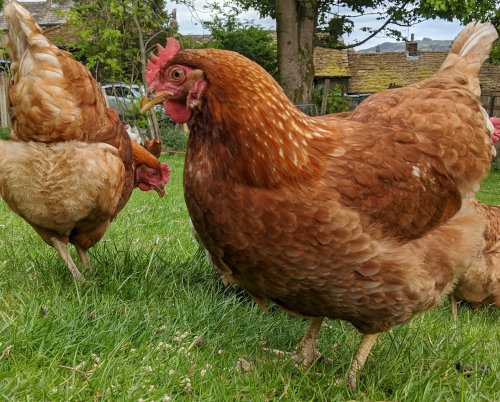Chickens and livestock on allotments

Fresh eggs is often one of the dreams of new plot holders.
The keeping of animals or livestock on allotments is subject to strict welfare codes covered by the Animal Welfare Act and enforced by the RSPCA and DEFRA. The Act states that "all animals have basic needs that must be fulfilled by their owner or keeper".
In the UK and across the EU animals must be allowed to exhibit their natural behaviours and if things go wrong you could likely lose your plot.
In the United Kingdom this is called the 5 freedoms and any animal kept on an allotment would need:
- A suitable diet.
- A suitable environment.
- Able to exhibit normal behaviour patterns.
- Be housed properly, with, or apart from other animals.
- Be protected from pain, suffering, injury and disease.
In England , landlords can be trusts, private landowners, parish, local or district councils. This diverse array of controlling bodies makes it almost impossible to say exactly what animals, and how many of each you will be able to keep on your plot.
What animals and livestock can you keep on an allotment?
In the UK, the Allotments Act 1950 allows for the keeping of rabbits and hens on an allotment. Other livestock my be allowed by agreement.
The earlier 1922 Act limited numbers to to 6 of each but this restriction was removed in 1950 and it was left up to controlling bodies to decide which animals could be kept and the limits on the numbers.
Below: A few of my chickens free ranging.

Livestock has to kept in accordance with laws and bye-laws and must not be a nuisance to other plot holders and in almost every case you will need to apply for permission from the land owner and pay a small fee.
Livestock can not take up more than 50% of the space of your plot and you are responsible for any damage they do. Plot holders must make sure animal waste is dealt with in a timely and proper manner.
A considerable number of community allotments are run by local and district councils and have been sub divided over the years and are no longer large enough for keeping any livestock at all.
You are also not allowed to run a business on an allotment so you would not be allowed to profit from the sale of rabbits or eggs produced there.
My allotments are run by a trust on land left for the good of the community and also allow for the keeping of other types of poultry and bees with permission from the landlord so if you shop around you may get lucky.
Community Gardens in the US are often even more strict as a great many cities still do not allow even chickens in domestic settings.
Below: My chickens happily free ranging on the lottie.
Expect to have a visit at least once a year from the RSPCA inspector to assess whether or not your birds are being well looked after and are in a suitable environment.
Something else to think about is that the more livestock you have on open land the more likely it is to be stolen or vandalised.
How many animals can you keep on an allotment?
You can normally keep between 6 and 12 animals on your allotment. More than this number is likely to be seen as a commercial enterprise.
I currently have 6 ducks and 9 chickens but certain combinations of animals would need to be kept apart
Can you raise meat birds or broilers on an allotment?
You can raise meat chickens or broilers on an allotment but you should be aware that there are strict laws that surround the raising and slaughter of animals for meat. These cover the animals welfare during slaughter, conditions, hygiene and the disposal of waste.
You may also raise an eyebrow with the other plot holders or the land owners so it is probably better not to.
Can you keep bees on an allotment?
You can keep bees on an allotment.
n my allotment site you can with the consensus of the other plot holders. If you just set up a hive and the next door plot holder is allergic to bee stings then it's not going to make for a harmonious time.
Can you keep ducks on an allotment?
It is possible to keep ducks on an allotment in the UK. My allotment is over a quarter of an acre in size and I currently have 6 ducks and 9 chickens.
Poultry needs to be kept in such a way that it is allowed to exhibit it's natural behaviours so for ducks this would mean they need a pond or access to water.
Below: Here is my ducks.
For the most part you can and some councils insist you apply for permission and some don't. I was told in my research for this article that it often depends on the site and if there are neighbours present that could be affected by the noise of livestock.
Can you keep budgerigars or pigeons on allotments?
I have friend who keep pigeons on an allotment, again you would need consent from the land owner and be responsible for their welfare.
Are turkeys or guinea fowl allowed?
I do know someone who has a trio of turkeys on their allotment and they are well liked by all the plot holders and are quite the characters. Again this is likely to be dealt with on a case by case basis.
Guinea fowl are noisy and fly well so it is unlikely you will be allowed to keep them on your plot.
What animals are not allowed on allotments?
Larger and noisy livestock like cockerels, pigs, cows, goats, sheep, ratites (Emus and Ostriches) and horses are not allowed on council allotments.
Private community gardens may be different. Cockerels in particular are not allowed to be kept because of the noise they make, crowing at 4 o'clock in the morning is likely to be a source of stress for any local residents.
If any animal on an allotment is found to be a nuisance, in poor health or being badly kept it can be removed and dealt with and the costs will fall on the plot holder.
